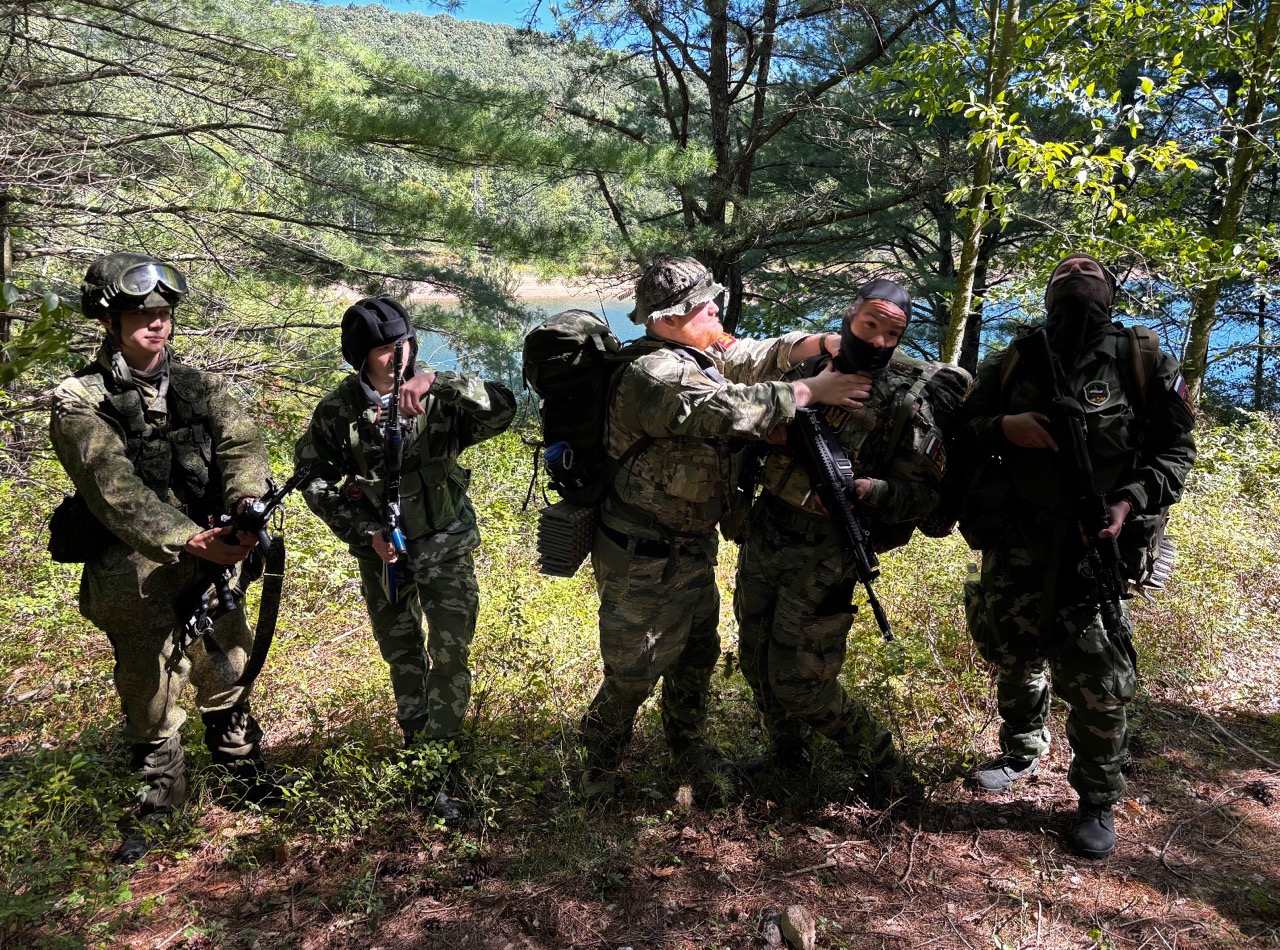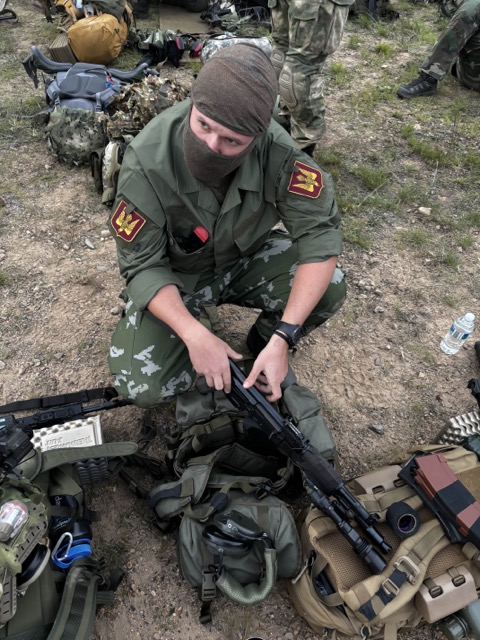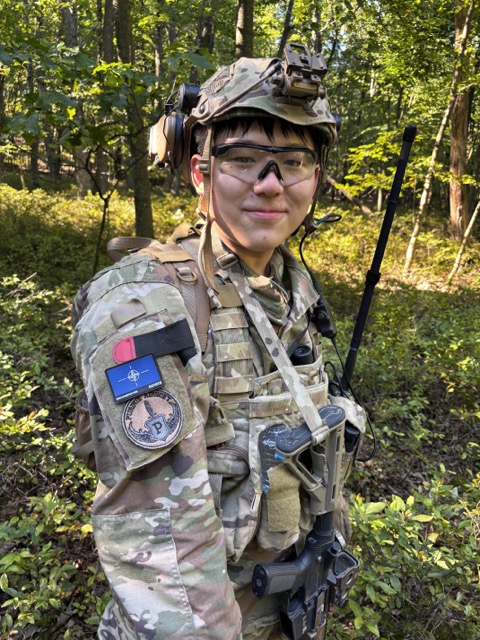
Milsim West’s Balkar Strike was not just another event. It unfolded in the rugged, wooded hills of Fern Glen, Pennsylvania, where old coal country terrain and thick forests created the perfect backdrop for forty hours of nonstop conflict. There were no safe zones or staging tents, no moments where the war paused. Instead, players lived in the field, carrying their homes on their backs, eating MREs under red light, and sleeping under the constant threat of an enemy push.
Milsim West is not a weekend game. It is not a skirmish where you clock in for six hours, burn through magazines, then head home for pizza and beer. It is forty continuous hours of uncertainty, exhaustion, and immersion. It is the long silence of patrols punctuated by the chaos of sudden ambushes. It is eating MREs in the dark while wondering if the tree line just shifted. It is waking up at 4:30 a.m. covered in condensation, shivering, and listening for blank fire in the distance.
For the Coyotes, it was also a test; not only of gear and grit, but of what it means to function as a team when comfort is stripped away.
Our story begins in the dark. The Coyotes had barely begun their infill, searching for a safe place to stage camp, when chaos erupted.
“It was dark, couldn’t see anything. We had to drop our rucks and push up a hill. I got separated from my squad, fell in with another, and fought side by side until the ambush was over.”
There was no easing in. Within five minutes, the game had stripped away the illusion that this would be ordinary. MSW is designed that way — to force players into the unknown, where improvisation and instinct matter more than preparation.

The hallmark of Milsim West is not the firefights — though there are many. It is the endurance. For forty hours, there is no “safe zone,” no return to staging. Every moment is in play.
“Knowing you could get shot while sleeping in your bag… it was a rush. But with my Coyote brothers, the hardships became manageable. Laughing helped us push through the night.”
“MSW is type 2 fun. The sustainment and staying out all night was rough — but looking back, it was fun. Reminded me of my years in Boy Scouts.”
Cold weather became its own opponent. Even the most dialed-in kits faltered in the damp chill of early mornings. One player admitted his sleep system left him waking soaked and freezing. Another realized his magazine pouches, mounted too high on his plate carrier, interfered with movement at critical moments. Lessons were learned not in theory but in fatigue and discomfort.

At home on the field in Indiana, camaraderie comes easily — friendly banter, quick reloading, handshakes at the end of a match. At Milsim West, camaraderie becomes something else: necessity.
“Our bond was way stronger than normal open play. We made sure everyone had ammo, food, and could keep fighting.”
“Morale was exceptionally high throughout. Our teamwork was top-notch, stronger than any weekend event.”
In the suck, every detail matters. The Coyotes learned that communication and battle buddies weren’t just nice-to-haves; they were survival. When one squad held a critical lookout point that could have exposed the entire platoon to a base drop, everyone knew the stakes. When patrols stretched into six or seven hours, teammates rotated watch, shared food, and ensured no one slipped.
For all the hardship, the moments of contact were unforgettable.
“Most intense firefight for me was that raid. Full auto, burning through ammo, medicing, fixing guns — pure chaos.”

What does one take from forty hours of cold, chaos, and camaraderie? For the Coyotes, a mix of hard-won wisdom:

It is tempting, back home, to romanticize the experience. To speak only of the firefights, the glory of the final push, the sight of NATO falling back under pressure. But to leave out the cold, the fatigue, the uncertainty would be dishonest. Milsim West is both misery and magic, often in the same moment.
“If you want something more organized than a weekend game — if you want to challenge yourself with the big dogs — this is it. I see why MSW is the only milsim now.”
The Coyotes came home tired, sore, and chilled to the bone. But they also came home forged tighter, prouder, and hungrier for the next fight.